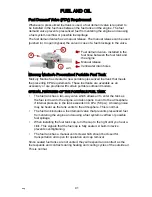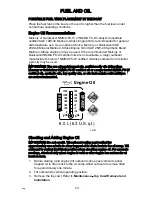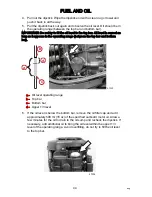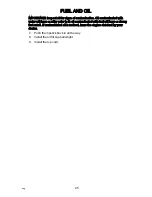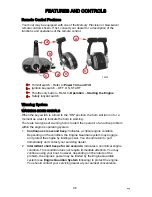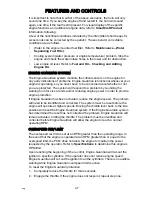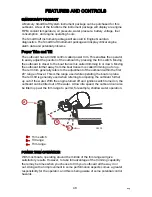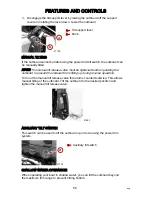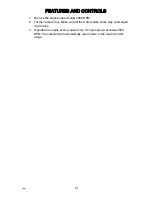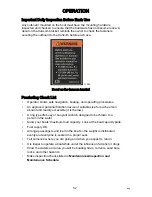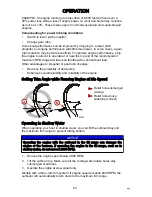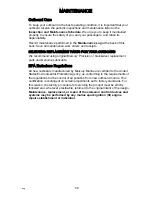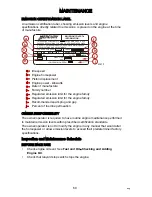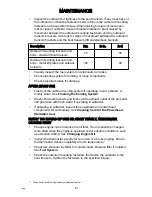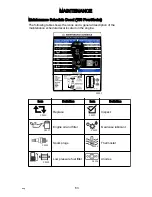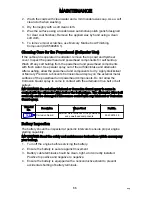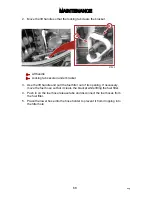
EXAMPLE: An engine running at an elevation of 8,000 feet will have over a
30% power loss while a loss of engine power on a hot and humid day could be
as much as 14%. These losses apply to normally aspirated and supercharged
engines.
Compensating for power robbing conditions:
•
Switch to lower pitch propeller.
•
Change gear ratio.
Some boat performance can be improved by dropping to a lower pitch
propeller, but engine performance will still remain lower. In some cases, a gear
ratio reduction may be more beneficial. To optimize engine performance, prop
the engine to allow it to operate at or near the top end of the recommended
maximum RPM range at wide‑open throttle with a normal boat load.
Other advantages to propeller or gear ratio changes:
•
Reduces the possibility of detonation
•
Enhances overall reliability and durability of the engine
Setting Trim Angle while Running Engine at Idle Speed
a -
Relief hole submerged
(wrong)
b -
Relief hole above
waterline (correct)
Operating in Shallow Water
When operating your boat in shallow water, you can tilt the outboard beyond
the maximum trim range to prevent hitting bottom.
NOTICE
Operating the engine with the outboard in the tilt range can damage the
engine or the transom. If operating the engine in the tilt range, such as in
shallow water, do not exceed 2000 RPM.
1. Reduce the engine speed below 2000 RPM.
2. Tilt the outboard up. Make sure all the cooling water intake holes stay
submerged at all times.
3. Operate the engine at slow speed only.
Models with a three‑ram trim system: If engine speed exceeds 2000 RPM, the
outboard will automatically return down to the maximum trim range.
a
b
47821
OPERATION
54
eng
Summary of Contents for 150 FourStroke
Page 2: ...eng ...


